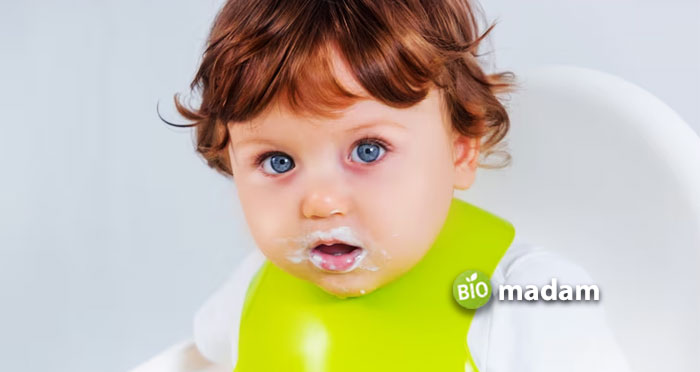Parenthood is a life-changing experience, especially for the newlyweds. It is filled with numerous questions and confusion regarding your baby. You might spend your days and nights just staring at your baby and observing every single detail about him/her. How he sleeps? How he wakes up? You will observe everything closely as you are very cautious when it comes to your little one.
If you are a new parent and notice your baby foaming at the mouth during sleep, do not worry. It is something not to be concerned about. It appears as spit in the corners of the mouth or like a frothy substance coming out of the mouth. It happens when saliva accumulates in your baby’s mouth during sleep. This is something completely normal. However, in some cases, it might be the cause of some serious underlying medical condition, but that is highly unlikely.
This platform will cover all the things you need to know about baby foaming at mouth during sleep, what it means, the causes behind it, how to manage it, and when to seek medical attention.
What Does Baby Foaming at Mouth During Sleep Mean?
While talking about foaming at the mouth, we get all sorts of awful images, but with babies, it is different and completely normal. Foaming at the mouth happens when excess saliva in the mouth mixes with air and forms foam. In babies, it can be seen as white milky bubbles appearing at the corners of the mouth. If your baby is still sleeping peacefully despite forming bubbles, it is not a cause for concern.
Only in some rare conditions can the foaming be a cause for concern and can lead to severe diseases or conditions such as seizures or respiratory distress syndrome. If you see any other concerning symptoms in your baby, then it is a good option to consult the pediatrician and discuss the issue.
10 Common Causes of Baby Foaming at Mouth During Sleep
Most of the causes for foaming are normal. Following are ten of the common causes for baby foaming at mouth during sleep:
Amniotic Fluid
If your baby was just born a few days ago and you observe foam coming out of his mouth, it might be possible that he is expelling the last of amniotic fluid from the stomach. This is something not to be concerned about and is normal.
Overfeeding
A newborn baby can consume one or two fluid oz of milk while feeding. If he is overfed, you will notice excess milk coming out of the mouth in the form of foam. However, it is impossible to measure overfeeding, but the feeding time limit for newborn babies is 10 minutes on each breast. Still, if you find your baby hungry, repeat the feeding process after taking a gap of 15 minutes.
Similarly, make sure to use the correct bottle to feed your baby as an extra big hole in the nipple will allow excess milk to enter the stomach along with air, later resulting in foaming.
Reflux
Acid reflux in babies causes the milk ingested by the baby to come out, and due to this, foaming at the mouth may occur. Make your baby sleep on his side as it can prevent the possibility of reflux, as sleeping on the back increases the chance of babies choking on the milk. Making your baby sleep in an inclined position in a bassinet can also reduce the chance of acid reflux.
Burping Issues
Another cause of foaming at the mouth is the failure to burp babies well. If they are not burped well before sleeping, it can result in foaming at the mouth and milk spitting. There are many burping techniques that you can follow. The most common and popular one is that make your baby faces you, their head must lie on your shoulder, and their stomach must press directly onto you. Massage their back until they finally burp.
Other methods include moving their legs in a bicycle movement or making them lie on their belly so the gas may expel and induce burp.

Teething
Teething can also be the cause of foaming. The teething process can cause discomfort and pain to the baby and lead them to foam or drool. It results in excessive saliva to be accumulated in the mouth. If they sleep with an open mouth, the saliva can get mixed with air, forming foam or bubbles. To ease the pain and discomfort of the babies, you can give them teething toys to chew on.
Mouth Breathing
Breathing through the mouth instead of the nose can also produce foam during sleep. In this case, the foam is formed for the same reason mentioned above. The air gets mixed with saliva as the mouth remains open at night.
Infection
Sometimes an infection or a disease might be the cause of foaming. Pneumonia and bronchiolitis can produce the symptoms of foaming during sleep. The babies become very fussy and might get a fever in such cases. They may also face difficulty in breathing. In situations like these, you must contact your pediatrician.
Colds or Allergies
Nasal congestion due to common colds or allergies can cause your baby to breathe through the mouth instead of the nose, eventually producing foam during sleep.
Medication
Some medications that affect saliva production in the body, such as those used for seizures or psychiatric disorders, increase saliva production as a side effect. The excess saliva accumulates and later on forms foam during sleep.
Sleeping Position
Sleeping position is also a very common cause of foam production. Make sure to make your baby sleep on his side, as sleeping on his back can result in saliva pooling and eventually produce foam while sleeping.
How to Manage Baby Foaming at Mouth During Sleep?
Foaming at the mouth can be due to reasons ranging from minor to severe. However, the severe reasons are always accompanied by some other symptoms. You must consult your doctor if you feel concerned about this issue and observe some other serious signs or symptoms. But most of the time, it is completely normal. Here are a few tips that you can follow to manage baby foaming issues:
- If this problem arises due to improper digestion of food, it will eventually go away as your baby grows and his digestive system develops.
- Try feeding them in small quantities, giving them proper time to burp, and keeping them upright.
- Massaging the baby’s back is also a great idea to provide comfort, and it also helps them to expel the air upwards and out. Learn different burping and massaging techniques to manage this issue.

When to Seek Medical Attention?
If your baby is foaming at the mouth but sleeping calmly, it is not a cause for concern. However, if you observe the following symptoms, you must seek medical help immediately.
Crying, Choking, and Fever
Suppose you observe other symptoms in your baby while sleeping, such as crying in discomfort or choking or if he or she has a fever. In that case, you must visit the doctor and get your baby examined, as this could be due to an infection or a gastrointestinal issue.
Vaccines
There might be some reaction to the vaccines, and if your baby got the vaccine shot the same day the symptoms appear, you should consult the pediatric doctor.
Breathing Difficulty
If your baby is facing breathing difficulties and is turning blue, then this is an alarming cause you must run to the emergency immediately.
New Food
If you have given a portion of food to your baby, which is new to them, foaming might appear due to intolerance. Keep a check on what you have provided to your baby, and if you see other symptoms, then rush to your doctor for assistance.
Different Colors of Foam
The baby’s foam might turn yellow, black, green, purple, or red in an infection. If this happens, you should seek medical help.
Weight Gain or Loss Issues
If your baby is suffering from a reflux problem, it is highly likely that he will experience weight loss or will not be able to gain weight because he is not receiving proper nutrition. In this case, you should meet with the doctor to discuss the issue.
Conclusion
Parents have many concerns regarding their babies, and baby foaming at mouth during sleep is one of them. However, this is a normal body function due to the accumulation of saliva in the mouth. It might be due to allergies, medications, sleeping positions, or some medications. They can be managed by following some burping or massaging techniques. In most cases, it is not something to worry about, but if you notice any other alarming symptoms, you can consult your pediatrician. With proper care and attention, you can help your baby manage this issue and make him comfortable while sleeping.

Jeannie has achieved her Master’s degree in science and technology and is further pursuing a Ph.D. She desires to provide you the validated knowledge about science, technology, and the environment through writing articles.

